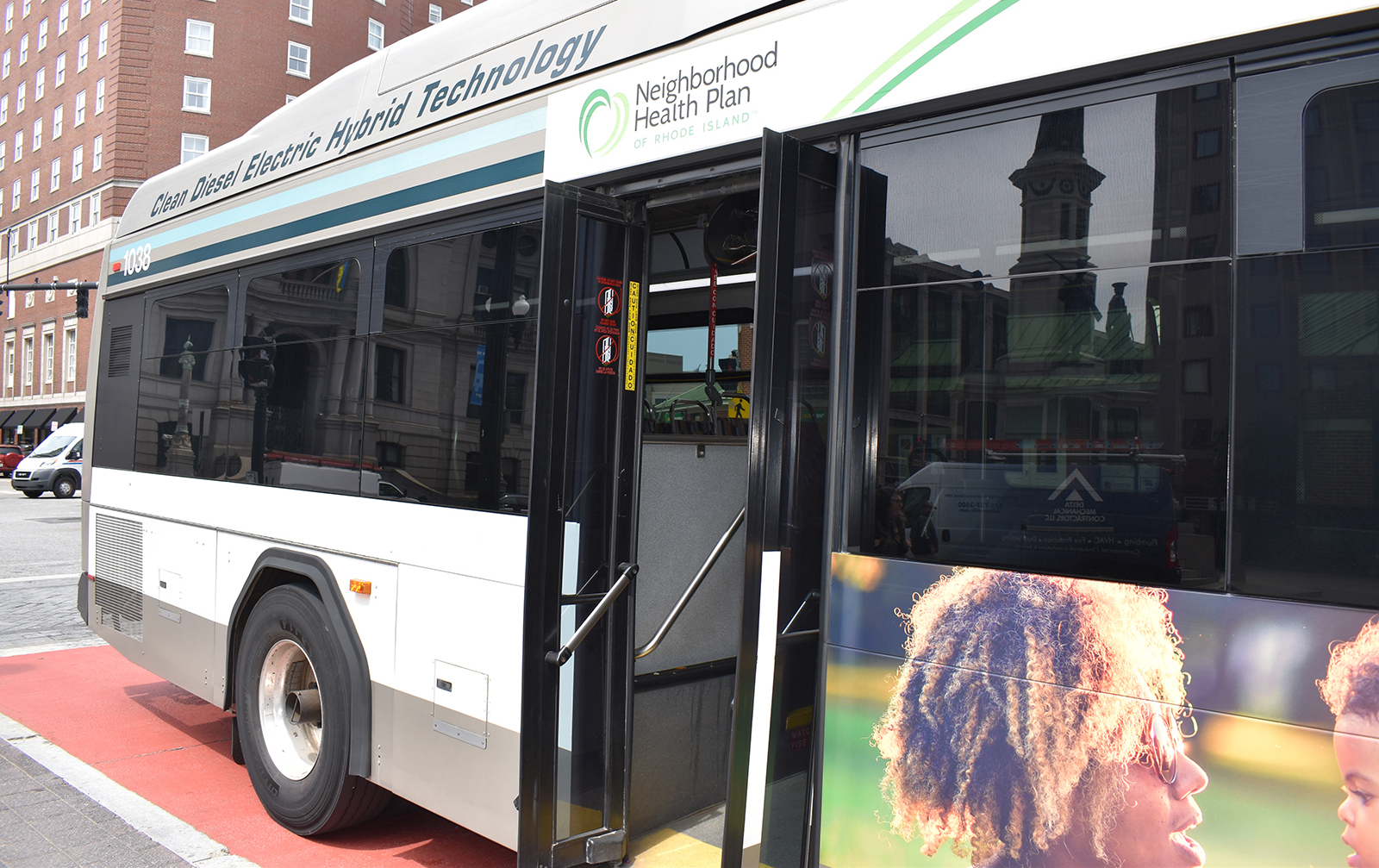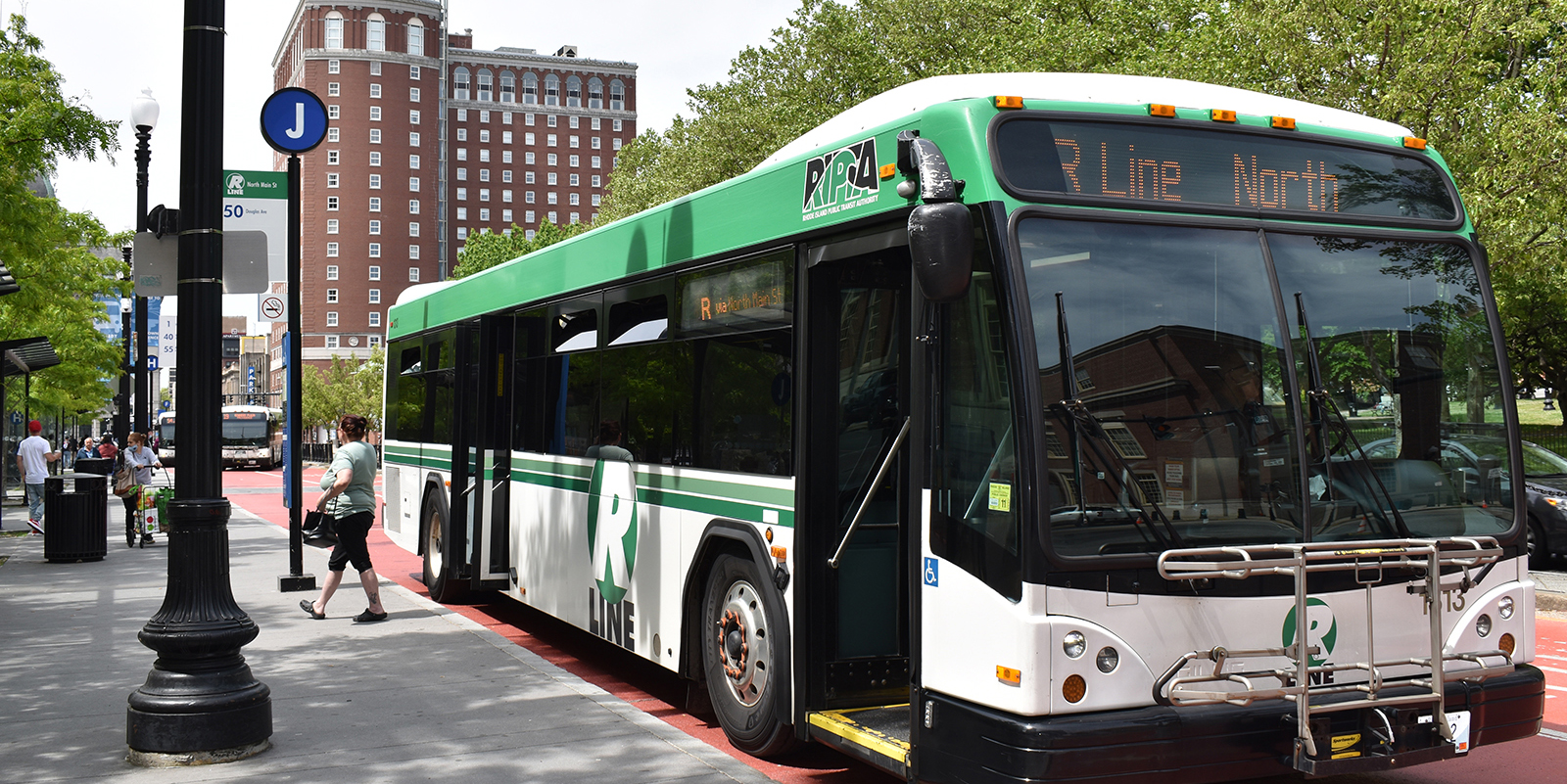RIPTA Board Votes to Raise Cost to Ride Bus
December 31, 2015
PROVIDENCE — The Rhode Island Public Transit Authority’s board of directors recently voted to raise the price for weekly and monthly bus passes and require low-income seniors and people with disabilities to pay a reduced fare to ride the bus. The $2 base fare remains unchanged.
The vote came after a months-long fare study and several public hearings. The study aimed to research ways to simplify the set of fare products available to riders; implement new fare technologies, such as fare boxes, ticket vending machines and smart cards; incentivize riders to buy fare products that result in quicker boarding times; and maximize revenue from ridership to reduce the agency’s annual deficit.
The new fare structure will be implemented in two phases. The first phase will be implemented March 1 for full-fare riders and July 1 for low-income seniors and people with disabilities. The second phase will occur during the next two years as new fare technologies are implemented.
During the first phase, the base fare will remain $2, but a transfer will increase from 50 cents to a dollar. Transfers will be valid for unlimited rides for a two-hour period. Both RIPtiks and the 15-ride pass will be eliminated, while a 10-ride transfers-included ticket will be added for $20.
The cost of a day pass will remain unchanged at $6, while the cost of a 7-day pass will increase from $23 to $25, and the cost of a monthly pass will increase from $62 to $70.
Seniors, who have ridden for free since 1975, will pay 50 cents for a single ride and 25 cents for a transfer. The price may be reduced further if additional funding for the reduced-fare program is identified prior to the July 1 implementation date. RIPTA staff is working with other state agencies and non-state partners to find such funding, according to Barbara Polechetti, RIPTA’s director of public affairs.
The price of multi-ride pass products for low-income seniors and people with disabilities remains undetermined, according to Polichetti. Deeply discounting weekly and monthly passes results in reduced-fare-eligible people buying these fare products and then reselling them for a profit to full-fare riders, Polichetti said. New fare technologies could help mitigate this problem as they are implemented, she added.
During the second phase, smart cards — plastic cards with a computer chip — will be added to the set of fare products available to riders. These cards could store a balance and be used to buy single rides, or could be used in place of a 1-day, 7-day or monthly pass.
Also during the second phase, all transfers would be discontinued, as would the 10-ride ticket. Monthly passes would be good for 30 days from the date of purchase, instead of a calendar month. Mobile payments — payments made through an app on a smartphone — would also be implemented in the second phase.
Prior to the December board of directors meeting, prices were expected to be set higher for low-income seniors and people with disabilities, at $1 per ride. The free-ride system for low-income seniors and people with disabilities, who account for more than a quarter of the agency’s annual rides, was unsustainable, according to Polichetti. The real value of each ride provided by RIPTA is calculated at $4.20 and rising, which is about 10 times the amount RIPTA is reimbursed by the state for low-income seniors and people with disabilities, she said.
Low-income seniors, people with disabilities and those who advocate for them pushed back at public hearings and board meetings. Many suggested a 50-cent fare, while others said the bus should remain a free service for these economically disadvantaged populations.
“It became very clear that this issue is part of a much broader conversation about social services and what the state would like to and can afford to provide,” Polichetti said when asked about RITPA’s decision to move forward with the smaller reduced fare. “In the end, with input from everyone, from the governor to our passengers, being weighed, the staff decided to recommend a more deeply discounted rate in the hope that our continuing conversations with partner state agencies will find more resources for RIPTA and for people who need our services at a reduced rate.”
Polichetti said the governor’s office is now helping to facilitate communications with other state agencies that serve low-income seniors and people with disabilities that may be able to offer additional resources.
Based on the fare structure initially proposed by RIPTA that included a $1 per ride reduced fare for low-income seniors and people with disabilities, RIPTA anticipated a deficit of about $800,000 in fiscal 2016. After the initial fare structure was modified to lower the reduced fare to 50 cents per ride, the agency estimates its deficit will be between $1.5 and $2 million. Polichetti emphasized that service cuts remain the last-resort option for balancing the budget.



